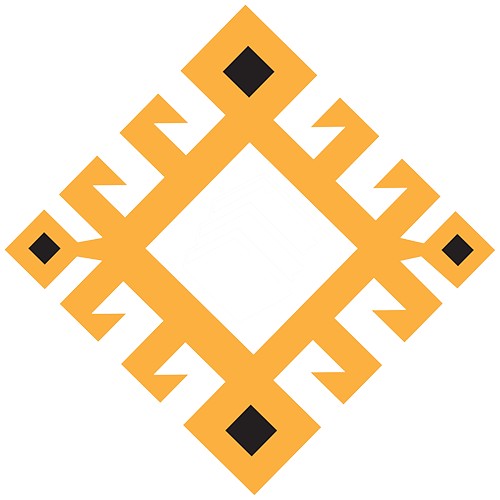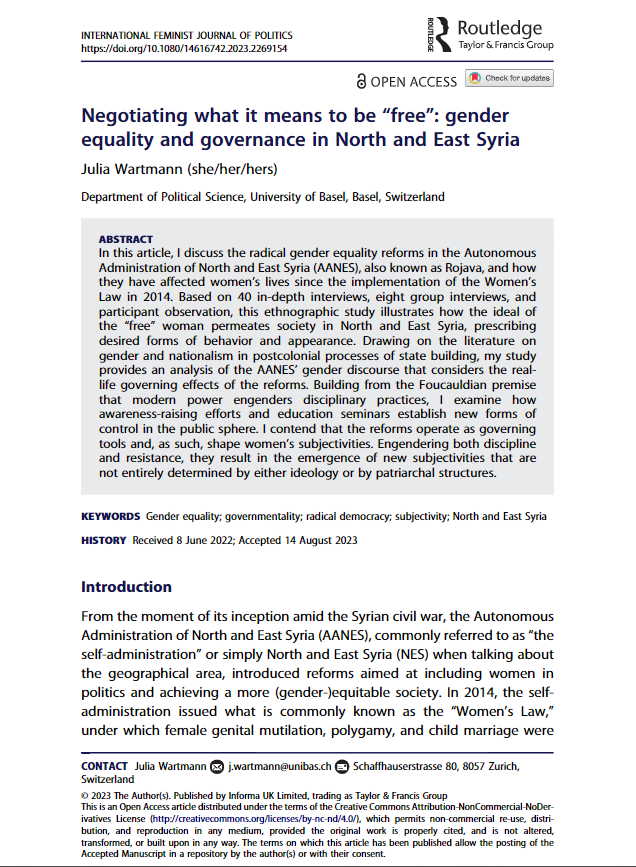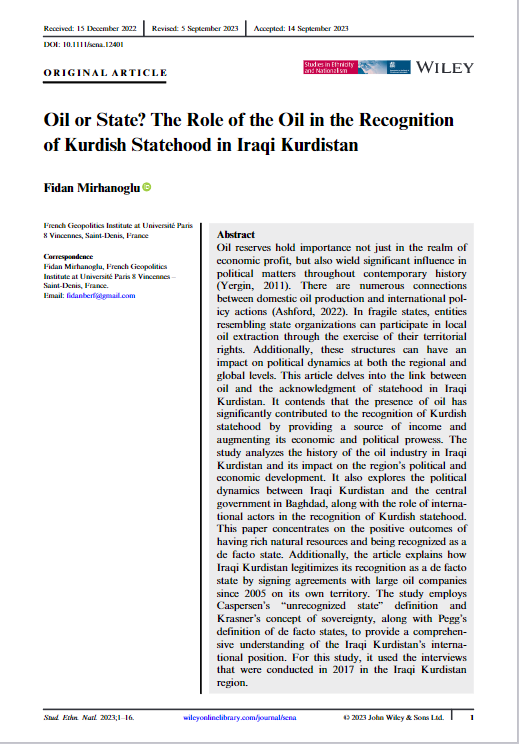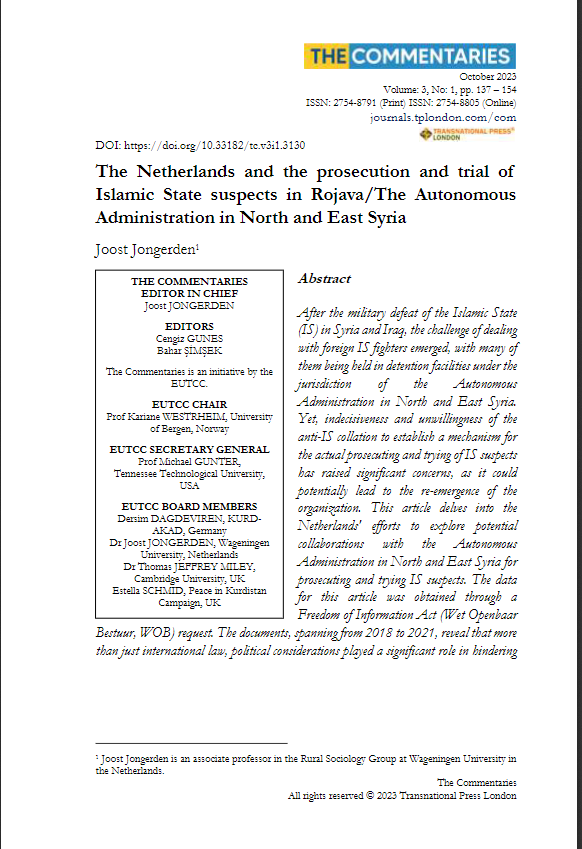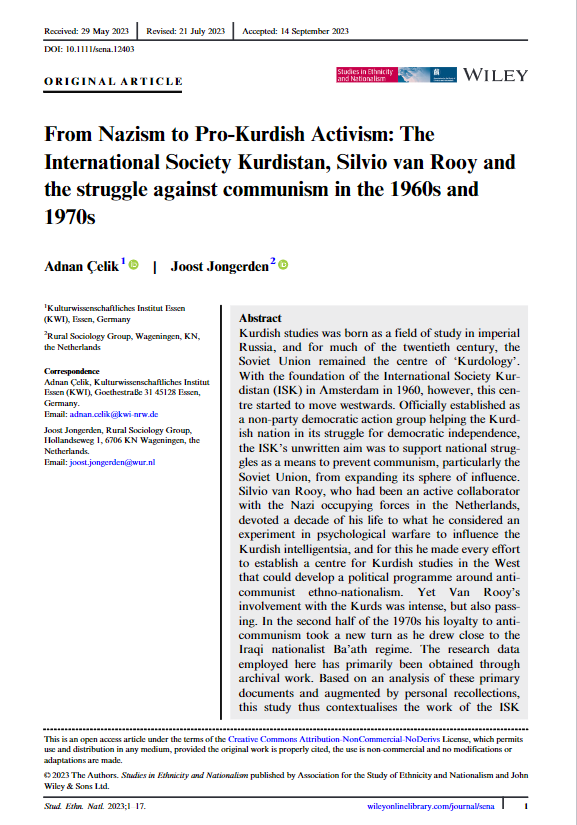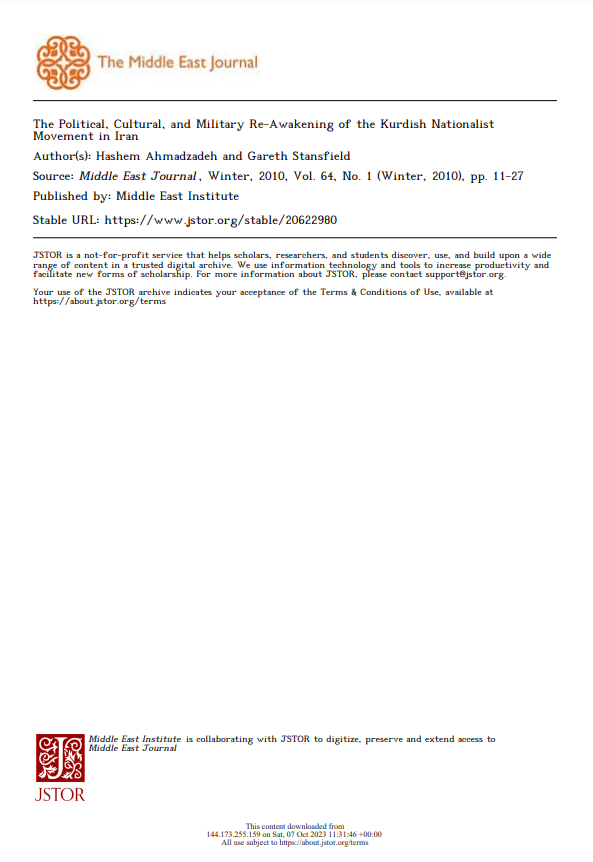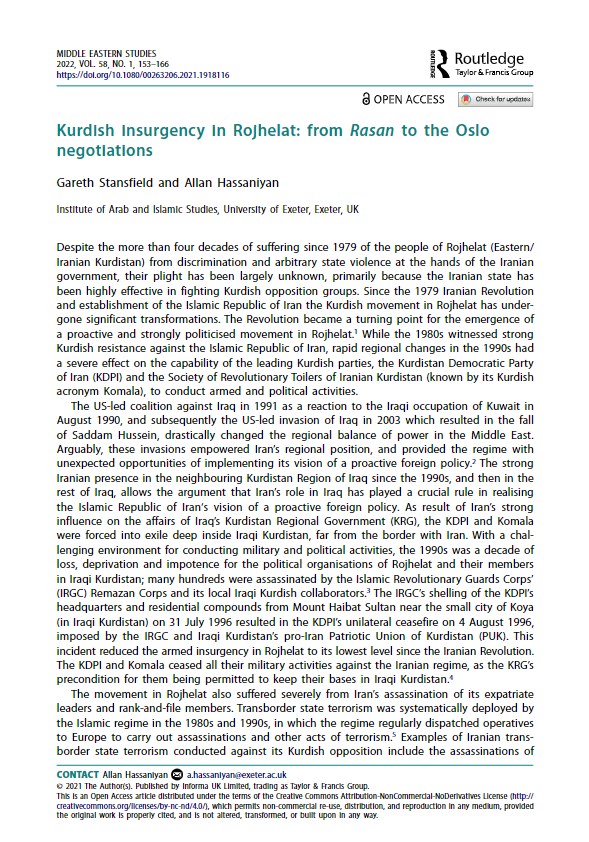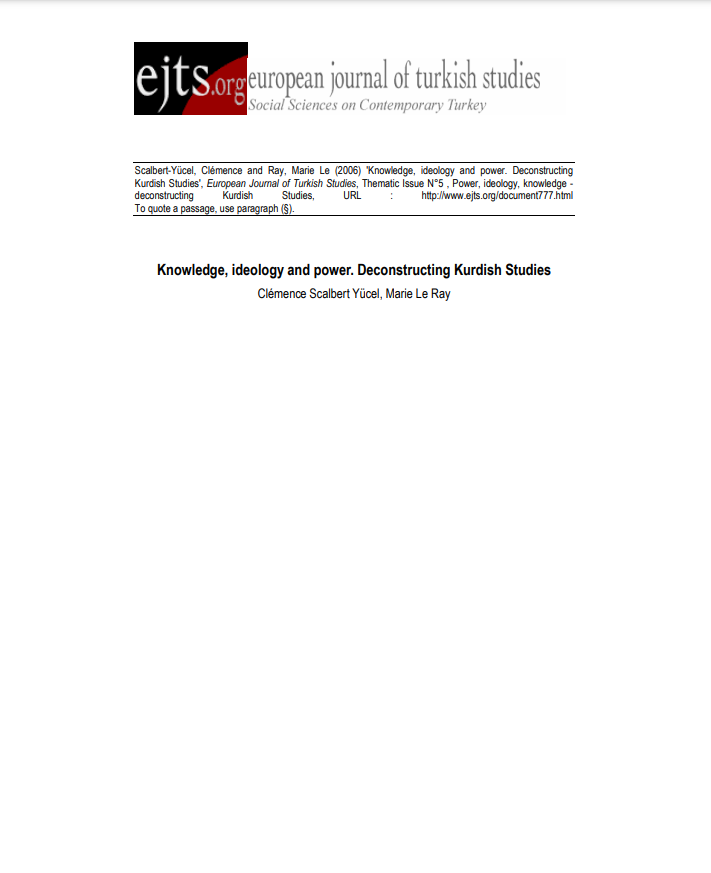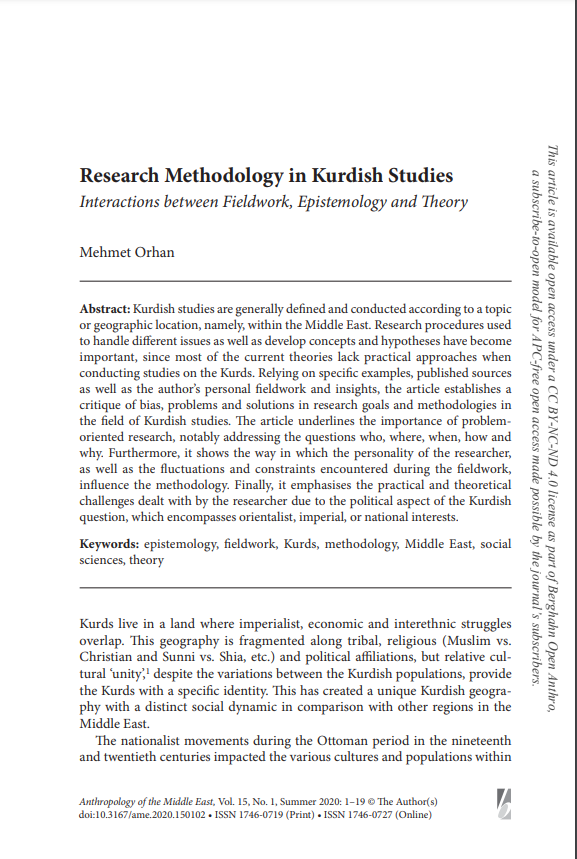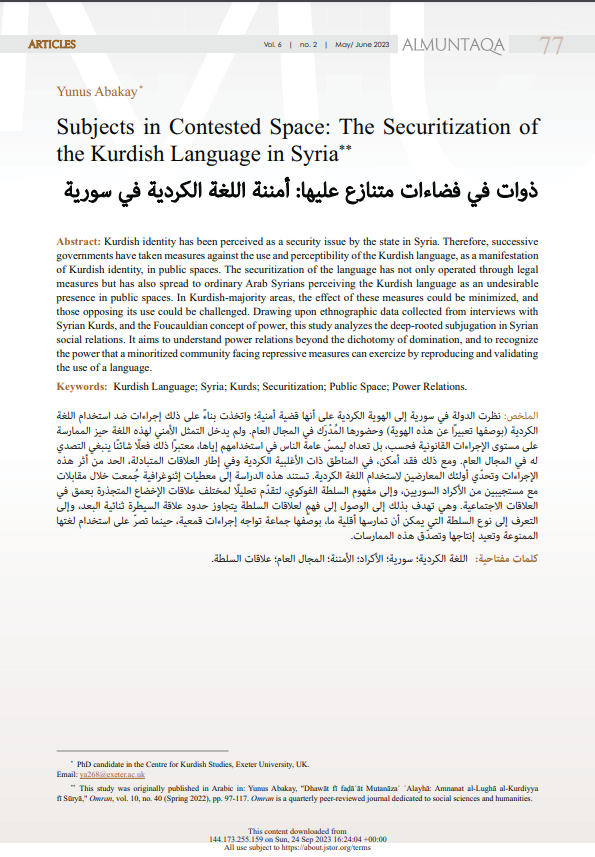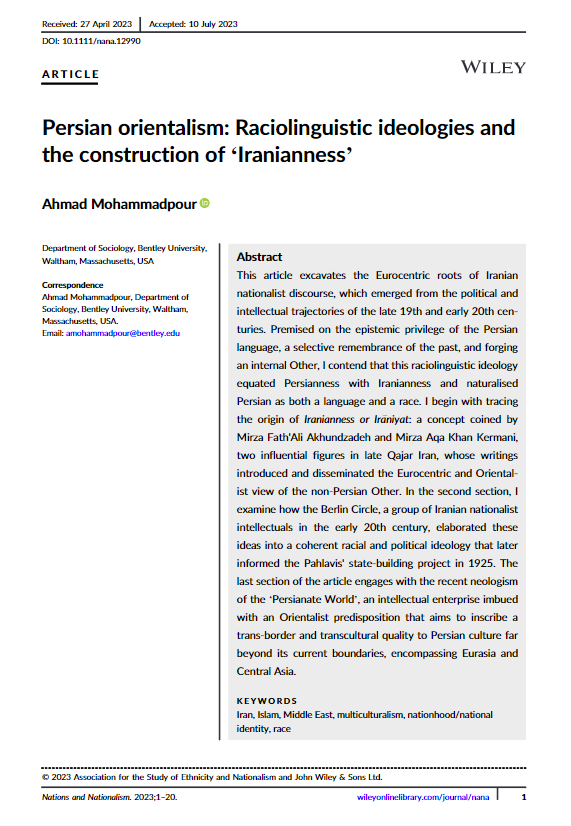Archives: Articles
- October 26, 2023
- 1:05 pm
Abstract / Review
In this article, I discuss the radical gender equality reforms in the Autonomous Administration of North and East Syria (AANES), also known as Rojava, and how they have affected women’s lives since the implementation of the Women’s Law in 2014. Based on 40 in-depth interviews, eight group interviews, and participant
- October 21, 2023
- 1:26 pm
Abstract / Review
Oil reserves hold importance not just in the realm of economic profit, but also wield significant influence in political matters throughout contemporary history (Yergin, 2011). There are numerous connections between domestic oil production and international policy actions (Ashford, 2022). In fragile states, entities resembling state organizations can participate in local
- October 15, 2023
- 1:29 am
Abstract / Review
After the military defeat of the Islamic State (IS) in Syria and Iraq, the challenge of dealing with foreign IS fighters emerged, with many of them being held in detention facilities under the jurisdiction of the Autonomous Administration in North and East Syria. Yet, indecisiveness and unwillingness of the anti-IS
- October 12, 2023
- 3:16 am
Abstract / Review
Kurdish studies was born as a field of study in imperial Russia, and for much of the twentieth century, the Soviet Union remained the centre of ‘Kurdology’. With the foundation of the International Society Kurdistan (ISK) in Amsterdam in 1960, however, this centre started to move westwards. Officially established as
- October 7, 2023
- 11:06 pm
Abstract / Review
This article aims to shed light on the modern history of the Kurds in Iran, with particular reference made to the main Kurdish political and social movements of the 20th century following World War I and the establishment of an Iranian nation-state. The modernization and centralization of the new state
- October 7, 2023
- 9:44 pm
Abstract / Review
This article sheds light on recent political developments in Rojhelat (Eastern/Iranian Kurdistan), focusing on the activities of Rojhelat’s leading political parties. This study argues that the existing situation in the area is a product mainly of the shift in Rojhelat’s mainstream political organisation, the Kurdistan Democratic Party of Iran, in
- October 1, 2023
- 9:53 am
Abstract / Review
The idea for this issue arose out of a seminar we organised, together with Jean-François Pérouse, in 2005-2006 at the Institut Français d’Études Anatoliennes (IFEA) in Istanbul on the ‘Conditions of emergence of the Kurdish question within the Turkish academic field’1. We noticed that since the 1990s there had been a
- October 1, 2023
- 9:39 am
Abstract / Review
Kurdish studies are generally defined and conducted according to a topic or geographic location, namely, within the Middle East. Research procedures used to handle different issues as well as develop concepts and hypotheses have become important, since most of the current theories lack practical approaches when conducting studies on the
- October 1, 2023
- 9:27 am
Abstract / Review
Kurdish identity has been perceived as a security issue by the state in Syria. Therefore, successive governments have taken measures against the use and perceptibility of the Kurdish language, as a manifestation of Kurdish identity, in public spaces. The securitization of the language has not only operated through legal measures
- October 1, 2023
- 9:12 am
Abstract / Review
This article excavates the Eurocentric roots of Iranian nationalist discourse, which emerged from the political and intellectual trajectories of the late 19th and early 20th centuries. Premised on the epistemic privilege of the Persian language, a selective remembrance of the past, and forging an internal Other, I contend that this
